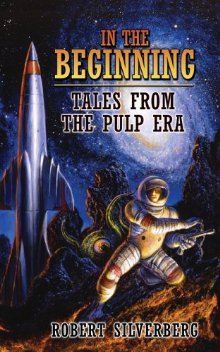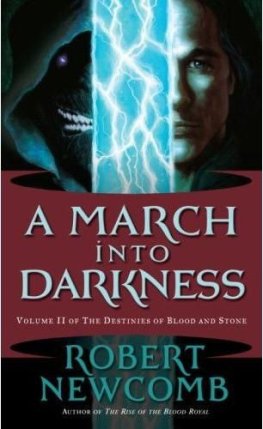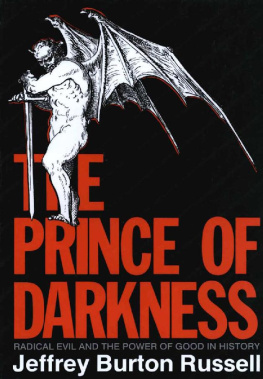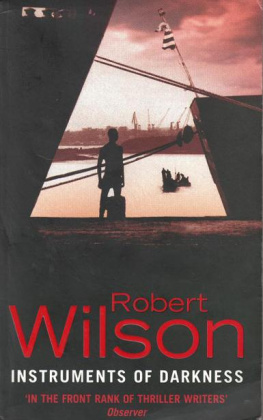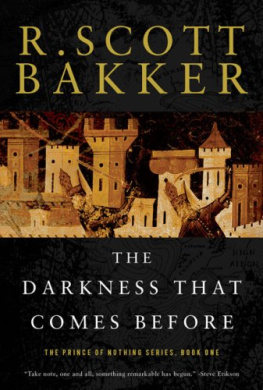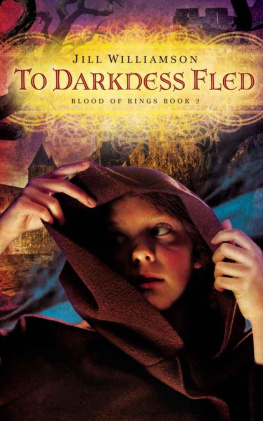Robert D. Novak - The Prince of Darkness
Here you can read online Robert D. Novak - The Prince of Darkness full text of the book (entire story) in english for free. Download pdf and epub, get meaning, cover and reviews about this ebook. year: 2007, publisher: The Crown Publishing Group, genre: Detective and thriller. Description of the work, (preface) as well as reviews are available. Best literature library LitArk.com created for fans of good reading and offers a wide selection of genres:
Romance novel
Science fiction
Adventure
Detective
Science
History
Home and family
Prose
Art
Politics
Computer
Non-fiction
Religion
Business
Children
Humor
Choose a favorite category and find really read worthwhile books. Enjoy immersion in the world of imagination, feel the emotions of the characters or learn something new for yourself, make an fascinating discovery.

- Book:The Prince of Darkness
- Author:
- Publisher:The Crown Publishing Group
- Genre:
- Year:2007
- Rating:4 / 5
- Favourites:Add to favourites
- Your mark:
- 80
- 1
- 2
- 3
- 4
- 5
The Prince of Darkness: summary, description and annotation
We offer to read an annotation, description, summary or preface (depends on what the author of the book "The Prince of Darkness" wrote himself). If you haven't found the necessary information about the book — write in the comments, we will try to find it.
The Prince of Darkness — read online for free the complete book (whole text) full work
Below is the text of the book, divided by pages. System saving the place of the last page read, allows you to conveniently read the book "The Prince of Darkness" online for free, without having to search again every time where you left off. Put a bookmark, and you can go to the page where you finished reading at any time.
Font size:
Interval:
Bookmark:
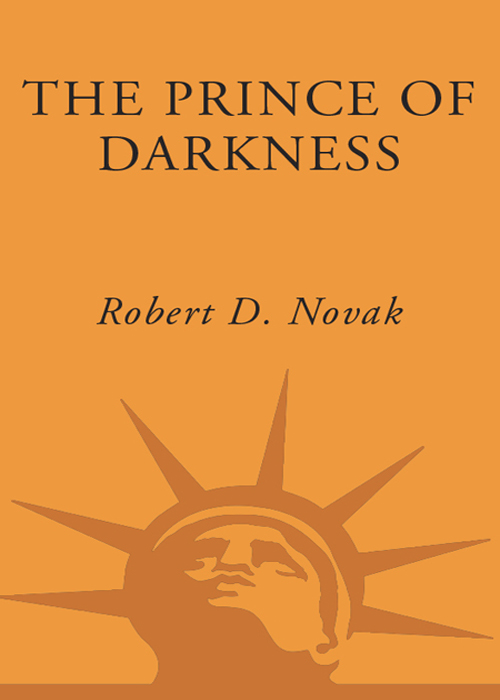
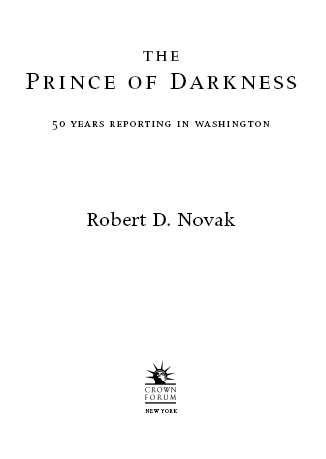
CONTENTS
To Geraldine Williams Novak,
my intrepid and loving partner.
CHAPTER 1
The Plame Affair
O N SUNDAY MORNING, July 6, 2003, I drove from my downtown apartment to the studios in far northwest Washington to appear on NBCs Meet the Press for the 236th time. As I came to the door of the green room, where guests are parked before going on the air, I encountered a sight that, because of events that followed, is emblazoned on my memory forever.
Seated at the far end of the green room was a man I knew I had seen somewhere. What now made him extraordinary was his conduct. The NBC green room always had been quiet, almost hushed. Roundtable participants like me read the thick file from the Sunday newspapers and the weekly newsmagazines prepared for them by the Meet the Press staff. Conversation among guests and their aides was usually limited to small talk and avoided confrontational debate.
But this unknown gentleman was speaking in stentorian tones, as if delivering a speech to his silent companions in the green room. Because most of the seats were taken, I remained standing at the end of the room. Having come in the middle of his harangue, I could barely get the gist of it. He kept saying We did this and We did that. The we, I soon surmised, consisted of the National Security Council staff in the departed Clinton administration. He was making clear that we handled affairs better than theythe Bush NSCdid now. In view of what followed, I hope I can be excused for the vulgarism that crossed my mind: What an asshole!
After a few minutes of this, I was summoned to makeup. I then learned the identity of the green room orator. He was Joseph C. Wilson IV, a retired Foreign Service officer who had been charg daffaires in Baghdad in 1990 for the run-up to the Gulf War. His face was vaguely familiar to me because I had lately seen him being interviewed on television without paying close attention to exactly what he was saying.
But he had just made news, which is why the Meet producers had called the night before to book him as the lead guest, bumping two senators. Wilson had written an op-ed that morning in the New York Times. Sitting in the makeup room, I read it.
His big news went back to sixteen words in President George W. Bushs State of the Union address on January 28, 2003, which were included as part of the justification for military intervention in Iraq that would come six weeks later: The British government has learned that Saddam Hussein recently sought significant quantities of uranium in Africa.
On June 12 the veteran Washington Post investigative reporter Walter Pincus reported that an unnamed retired diplomat a year earlier had returned from a CIA-sponsored fact-finding trip to Africa with a negative report on the alleged uranium shopping by Iraq. The next day, June 13, Nicholas Kristof, a New York Times columnist with a decided anti-Bush slant, said an unnamed former ambassador had come back from Niger with intelligence that nearly a year earlier had contradicted Bushs sixteen words. Wilson next went public by offering the New York Times what he said would be the full story in his op-ed piece.
A reader of the famous op-ed years later would find no trace of the flamboyant Joe Wilson the world soon came to knowthrowing around the word liar and making unsupported accusations. Instead, Wilson used the language of diplomacy, carefully avoiding direct indictment of the president. He gave no hint that he was a fierce opponent of Bush, anxious to join the next Democratic administration.
Wilson affected to write more in sadness than in anger: I have little choice but to conclude that some of the intelligence related to Iraqs nuclear weapons program was twisted to exaggerate the Iraqi threat. He related that the CIA had asked him to go to Niger to investigate Iraqs alleged quest for yellow cake uranium used in nuclear weapons development. He gave this memorable exposition of how he functioned:
I spent the next eight days drinking sweet mint tea and meeting with dozens of people: current government officials, former government officials, people associated with the countrys uranium business. It did not take long to conclude that it was highly doubtful that any such transaction had ever taken place.
He disclosed he had never filed a written report. He added there should be at least four documents in government files based on his oral briefing, none of which he had ever seen. He was still the careful diplomat in the op-eds two-paragraph conclusion:
I was convinced before the war that the threat of weapons of mass destruction in the hands of Saddam Hussein required a vigorous and sustained international response to disarm him. Iraq possessed and had used chemical weapons; it had an active biological weapons program and quite possibly a nuclear research programall of which were in violation of United Nations resolutions. Having encountered Mr. Hussein and his thugs in the run-up to the Persian Gulf War of 1991, I was only too aware of the dangers he posed.
But were these dangers the same ones the Administration told us about? We have to find out. Americas foreign policy depends on the sanctity of its information. For this reason, questioning the selective use of intelligence to justify the war in Iraq is neither idle sniping nor revisionist history, as Mr. Bush has suggested. The act of war is the last option of a democracy, taken when there is a grave threat to our national security. More than 200 American soldiers have lost their lives in Iraq already. We have a duty to ensure that their sacrifice came for the right reasons.
By the time I had finished my makeup, hastily read the op-ed, and entered the green room, Wilson had left to be interviewed by NBCs Andrea Mitchell (subbing for Tim Russert) in the opening Meet the Press segment. We did not meet that day.
WHEN I WENT to my office the next day, Monday, July 7, Joe Wilson was not in the forefront of my mind. Frances Fragos Townsend was. She had just been named deputy national security adviser at the White House though her background was in liberal Democratic politics, including Attorney General Janet Renos inner circle during the Clinton administration. Her appointment was a political mystery of the kind I had been exploring for forty years in my column. While I was placing calls to wrap up the story on Monday, I asked the same sourcesincluding administration officialswhat they thought about the dispute concerning uranium in Africa. Everybody seemed to concede a mistake had been made in using the sixteen words in the State of the Union, a view that they said apparently was shared by the president. None of my sources attacked Joe Wilson. Nobody had much to say about him at all.
I wrote the Townsend column Tuesday morning because I had a busy schedule the rest of the day, including a 3 p.m. appointment with Richard Armitage, deputy secretary of state. I had no idea what a big event it would turn out to be.
Armitage was then fifty-eight years old and had spent much of his life in public service following graduation from the U.S. Naval Academy. During the Reagan administration, he held the important post of assistant secretary of defense for international security affairs.
When George W. Bushs administration began in 2001, the new secretary of state, Armitages close friend Colin Powell, had sought to place Armitage at the Defense Department as deputy secretary. But he was blocked by the new secretary of defense, Donald Rumsfeld, who felt one department under General Powells control was enough. Instead, Armitage became Powells deputy at State, where the two officials were described to me as joined at the hiptwo men operating as one.
Next pageFont size:
Interval:
Bookmark:
Similar books «The Prince of Darkness»
Look at similar books to The Prince of Darkness. We have selected literature similar in name and meaning in the hope of providing readers with more options to find new, interesting, not yet read works.
Discussion, reviews of the book The Prince of Darkness and just readers' own opinions. Leave your comments, write what you think about the work, its meaning or the main characters. Specify what exactly you liked and what you didn't like, and why you think so.

